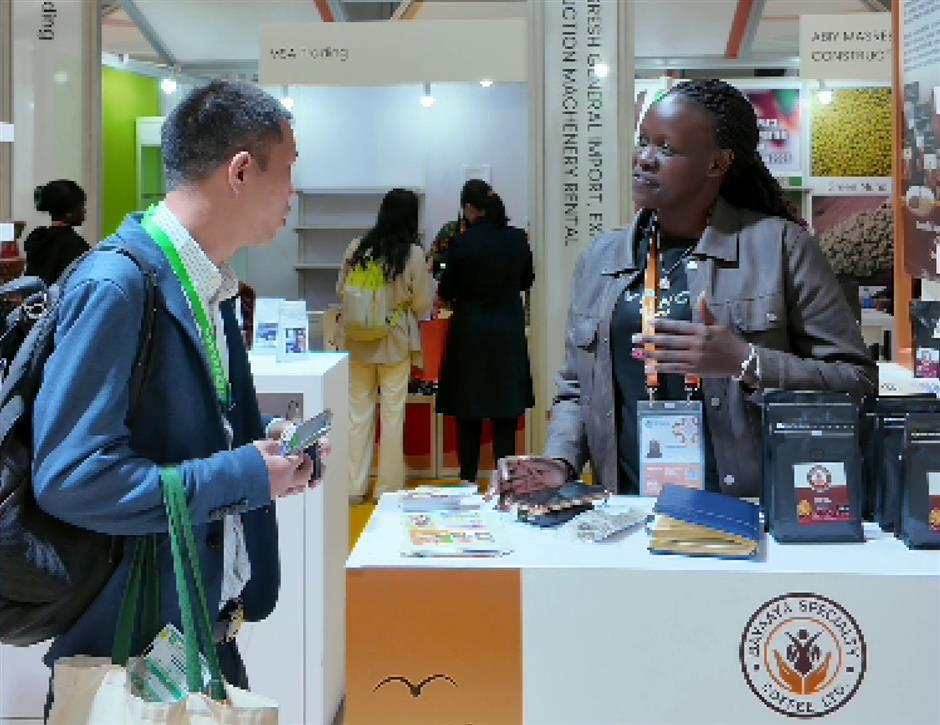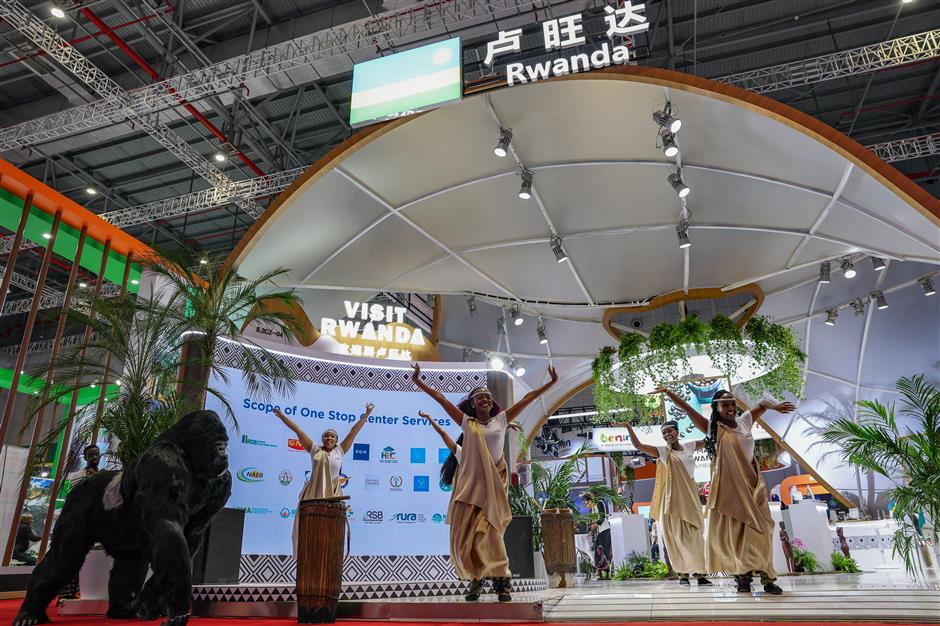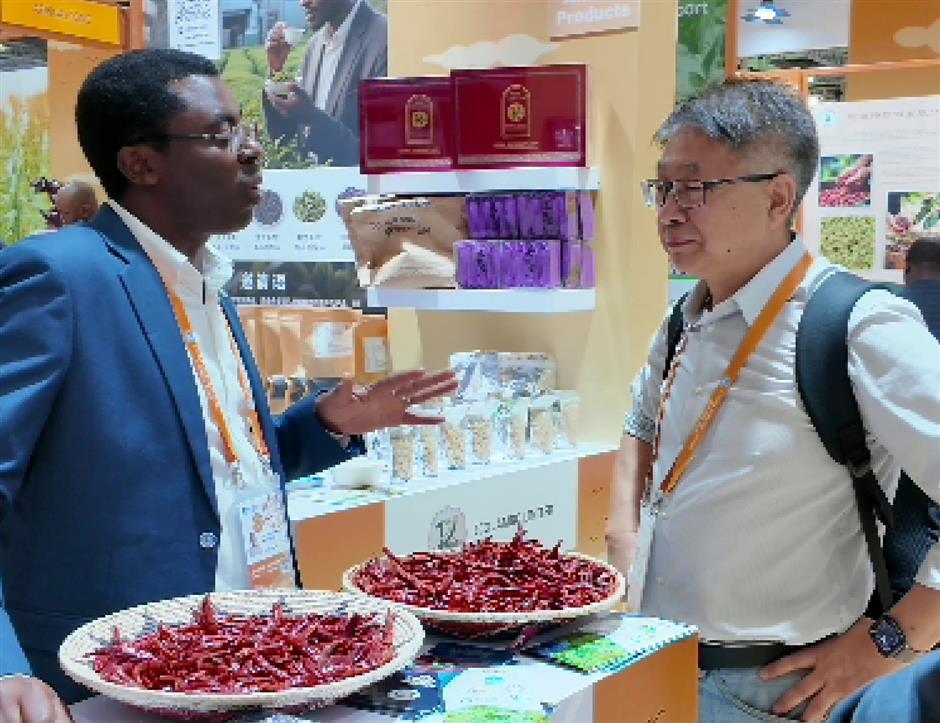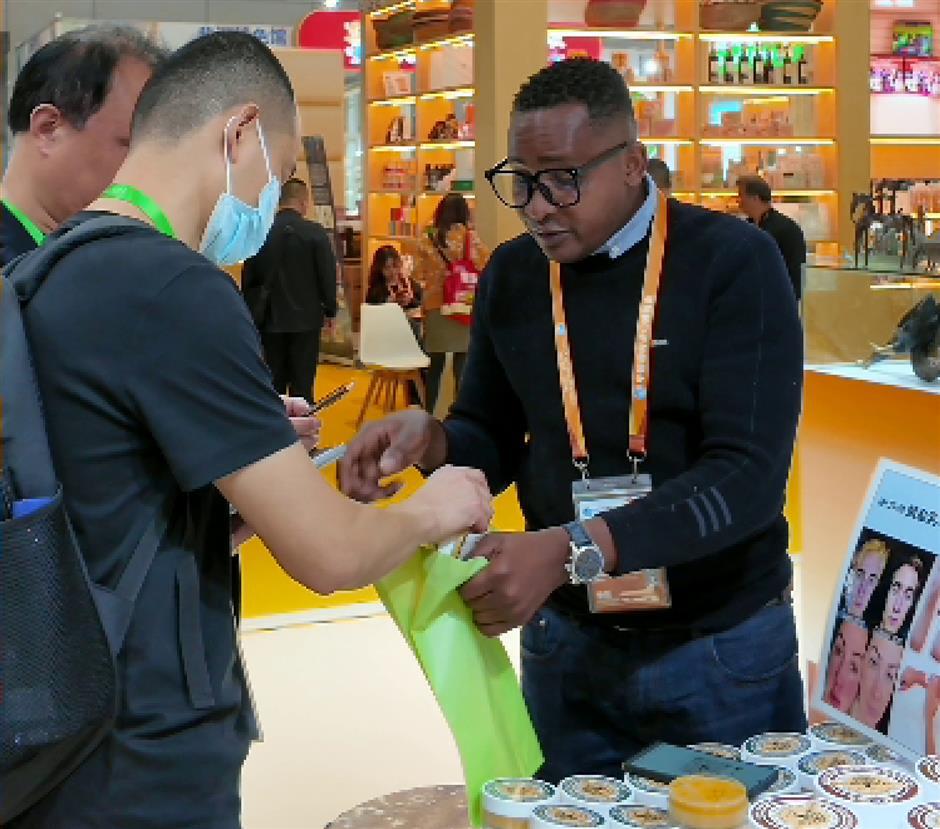政府新闻
非洲企业通过进博会在中国取得成功 2025-11-09
Ugandan exhibitor Meridah Nandudu gently slid a sealed packet of Arabica beans across the counter at the 8th China International Import Expo (CIIE). The aroma of roasted coffee quickly filled the air.
Buyers leaned in, drawn by the rich scent of freshly roasted beans.
"You can tell it's genuine Arabica even without opening the package," she said.
Her company, Bayaaya Specialty Coffee, is showcasing roasted, ground, and green coffee beans from Uganda's eastern region. She said Shanghai's booming coffee culture had lured her to the expo.
"Zero tariffs make doing business so much smoother," she said. Tariff-free access has cut costs and unlocked a broader market for her offerings.
This year's CIIE drew participants from 155 countries, regions, and international organizations. More than 4,100 overseas companies filled 430,000 square meters of exhibition space, roughly 60 standard football pitches.
For the first time, the expo has set up a dedicated zone for exhibitors from least developed countries (LDCs) – nations recognized by the United Nations as having low income, weak human assets, and high economic vulnerability.

Ugandan exhibitor Meridah Nandudu talks with potential buyers and business partners at the CIIE.
As of 2025, over 40 countries are on the UN's LDC list.
China launched a "green channel" for African agricultural exports back in 2021. As of December 2024, all products from LDCs with diplomatic relations with China are eligible for zero tariffs. The policy now applies to 53 African nations.
African participation at the CIIE surged by about 80 percent this year. A total of 163 enterprises from LDCs joined – a 23.5 percent increase from last year.
At Sudan's booth, Mamoun Bashir, general manager of the company's China office, displayed sacks of sesame, peanuts, chickpeas, and soybeans from across the Horn of Africa.
"Tariff-free imports let us compete more effectively in this market," he said.
The seeds are mostly hand-harvested with minimal chemical inputs. "They come out very clean and natural."
White sesame is primarily used for baked goods, while red sesame is processed for oil.

Dancers perform at the Rwanda pavilion at the CIIE.
From Niger, Oumar Souleymane A Kiari stood amid neatly arranged rows of white beans, millet for soft drinks, black sesame, and jars of shea butter.
"We have quantity if people are really looking for it," he said.
This marked Niger's second time participating in the CIIE, which has helped his company forge ties with major buyers.
At Mali's booth, Thera Amadou showcased baobab oil, shea-butter oil, black millet flour, and other natural skincare products. It was his fifth CIIE appearance.
"Today we sold 20 bottles of oil," he said. "You have it, you will never grow old."
The Uganda booth stayed busy all day. Nandudu said her company is also launching an Alibaba store to sell directly online. "We're preparing to reach buyers directly after the expo," she said.
Nearby, a special "Africa Goodies" section attracted long lines. Over 140 African products – from Malian shea-butter skincare to Madagascan vanilla and Ghanaian cocoa – were on display. The zone is designed to help more African non-resource products enter the Chinese market.

African exhibitors engage with buyers at the CIIE.
Rwanda's ambassador to China, James Kimonyo, said Rwandan exporters have expanded rapidly through the CIIE.
"Our exhibitors started with small samples in suitcases. Now they are shipping containers," he told People's Daily. The expo helped companies like G Step Coffee and Gorilla's Coffee transition from trial exports to stable shipments.
Thanks to the CIIE, Rwanda became the first African country to export dried chili to China. The country now exports coffee, chili, and tea through strengthened trade links.
Partnerships between Rwanda's Gashora Farms and agricultural firms in Hunan Province have created jobs and boosted farmers' incomes.
"The business model benefits both sides," Kimonyo said. "Chinese investors gain stable returns, and African farmers earn more."
He said each kilogram of coffee sold to China now brings about US$4 more to the farmer than before.
China-Rwanda trade reached US$669 million in 2024, up 21.4 percent from 2023. Imports from Rwanda rose 22.5 percent to US$160 million.
"Without the CIIE, it would be hard for us to reach China's vast market," Kimonyo said. "The expo shows China's openness and gives African firms a chance to meet buyers face to face."

Thera Amadou sells shea-butter oil to participants at the CIIE.
Source: City News Service
